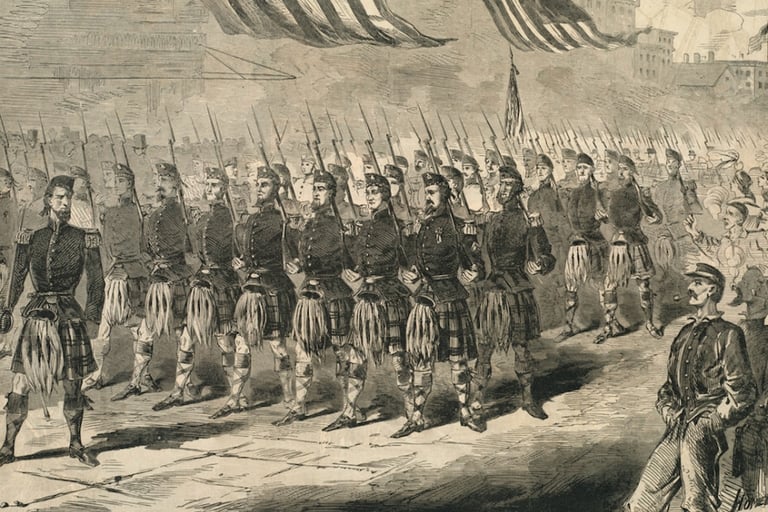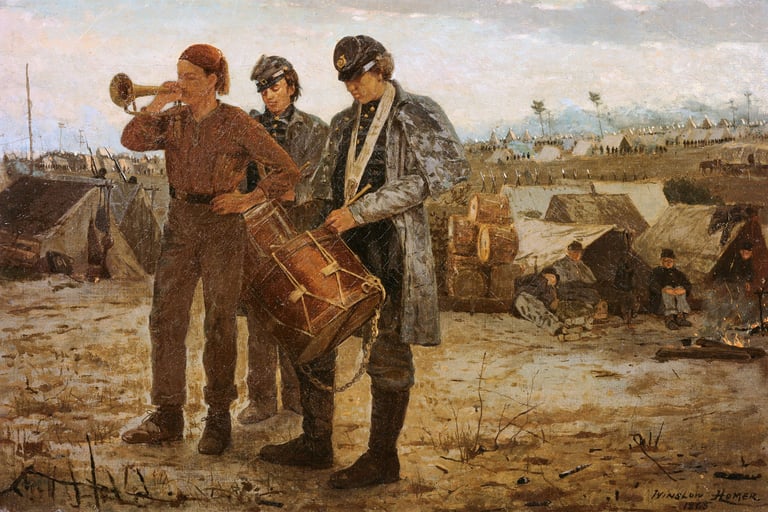
The Music of History
Songwriters have often delved into the world of translating history with a song.
8/1/20233 min read


The magic of the underground railroad has been captured in that old Negro Spiritual, Follow the Drinking Gourd. What is so unique about this old time, folk song is that within the lyrics are actual instructions about how to follow the Underground Railroad out of the cotton plantations of Mississippi or Alabama to a better life in free-state Ohio. For years modern Americans surmised that the catchy tune provided a virtual road map on how to escape bondage.
To the contrary, contemporary research has revealed that in all probability that the song, Follow the Drinking Gourd, was created in the early twentieth century. Nonetheless, the folk tune records for future generations how this network of devoted good souls enabled tens of thousands of slaves to find shelter in British Canada, where American fugitive slave laws were not honored. Posted below is a soulful rendering of the enduring story, as performed by Eric Bibbs.
The Underground Railroad

At the Purchaser's Option
The Music of History
War Comes to America
Not too long ago, it was pointed out in a book called, Time on the Cross, that in the United States, a large, well-fed, slave population developed from a surprisingly low number of imported Africans, especially when compared to the Caribbean Islands, where just the opposite was true. Though this historical version may well be true, it was duly noted that the overall discussion failed to mention, how much control slave owners had over their bonded workers. Nowhere is this more evident than in the written agreements that were signed at time of purchase. Following is Rihannon Giddens performing a song she wrote, titled At the Purchaser's Option.
Near the end of his life, George Washington decreed that all his personal slaves would be set free at the time of his passing. On the other hand, Martha, George's wife, decided to keep her personal servants and pass them on to her own heirs. By some strange hand of fate, Martha Washington's slaves ended up in the hands of Robert E. Lee, just as the War Between the States was about to commence.
Not only does this obscure historical anecdote underscore how different attitudes in the same family could exist side by side, but it also demonstrates how slaves were seen as individual property. Furthermore, if one examines the wills of wealthy Southerners, it is furthermore evident how slaves were thought of as personal property, as they were often passed on to the future generation.
When observing these different yet prevailing attitudes of nineteenth century America, it is easy to see how the young nation was headed into a bloody and deadly war. In the following music clip about Soldier's Joy, Guy Clark clearly defines just how devastating the Civil War really was. Though written in the 20th century, Soldier's Joy was real time slang about a liquid form of morphine that could imbibed as a very strong pain-killer to those severely injured in battle.

Music fans are well aware of the history of popular music. It is a rich and colorful legacy that includes such events as Johnny Cash and Elvis Presley recording at Sun Records, Hank Williams' huge popularity at the Grand Ole Oprey, Woodstock, Muddy Waters in Chicago, the San Francisco Sound and much, much more.
On the flip side of this coin is the history ages as seen through musical expression. Overall, this is a much smaller realm, for it seems that songwriters are much more concerned with the present day than anything else. Through this tiny window, I will take a brief look at three contemporary songs that dare to look back at our collective 19th century national experience.



The banks of the Tombigbee River in Mississippi were a major route for escaped slaves traveling north.


A small drum and bugle corp in camp during the Civil war. Painting by Winslow Homer
This illustration by Winslow Homer depicts the very large Call to Arms during the Civil War.

